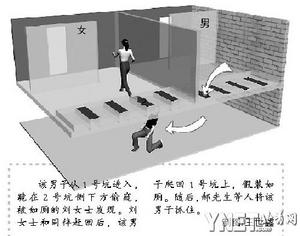Proving once again their quaintly mysterious separation from reality, CCP officials today urged their citizens to look under their beds and over their shoulders for menacing overseas spies. (No, I’m not joking.)
In a warning eerily reminiscent of Invasion of the Body Snatchers, mainlanders are warned that these enemy agents could take any form — tourist, reporter, teacher — but their goal is the same: to disrupt and subvert China’s glorious socialist (with Chinese characteristics) way of life.
Be on lookout for spies, public told
Counter-espionage officials have warned the public and cadres to be on the alert for overseas agents spying in China.
Using their real names, two officials from the Beijing Bureau of State Security joined a discussion on Friday on the Beijing municipal government’s website to promote the National Security Law, introduced in 1993.
The bureau’s legal office director, Guo Wen, said overseas intelligence bodies and hostile forces opposed to the government were targeting mainlanders to expand the scope of their ideological and political penetration of the country and society.
“They take advantage of their legal identities as diplomats, journalists, businesspeople, visiting scholars and tourists to steal information under the guise of media interviews, trade co-operation,
friendly exchange and sightseeing,” Mr Guo said.
He said party members, political and technical research bodies as well as state-owned enterprises were targeted because of their influence and their access to state secrets.
Mr Guo said he was concerned about the lack of public and official awareness of the security issue.
“Some people think some formerly hostile countries are friendly to us nowadays, that people from these countries are friends, and there’s no need to ensure the country’s international security. Some cadres lack awareness. They don’t believe there is espionage in our country and they don’t know how to deal with it. Some even deliberately leak our secrets.”
The officials said people jeopardising state security could be punished under the law.
Mr Guo said the bureau had uncovered many cases involving spying and the stealing and leaking of state secrets since it was set up in 1984.
“Some cases were reported in the news media. But most of the cases concern state secrets and the trials are behind closed doors,” he said.
In a high-profile case, newspaper editor Shi Tao was sentenced in April to 10 years in jail for providing state secrets to overseas organisations.
Another journalist, researcher for The New York Times Zhao Yan, has been held incommunicado without trial since September on suspicion of leaking state secrets abroad.
There are enemies among us! We must weed them out and treat them with ruthlessness!
Honestly, I thought this kind of talk went out 30 years ago. And if you look at the two cases cited, Zhao Yan and Shi Tao, we all know they had nothing to do with state secrets and everything to do with the government’s loss of face.
I go to China in just a little while. In case they try to detain me on espionage charges, I want it on the record that I am not now and never have been a spy and have no intention of subverting the government.
This should be great for tourism!


Comments